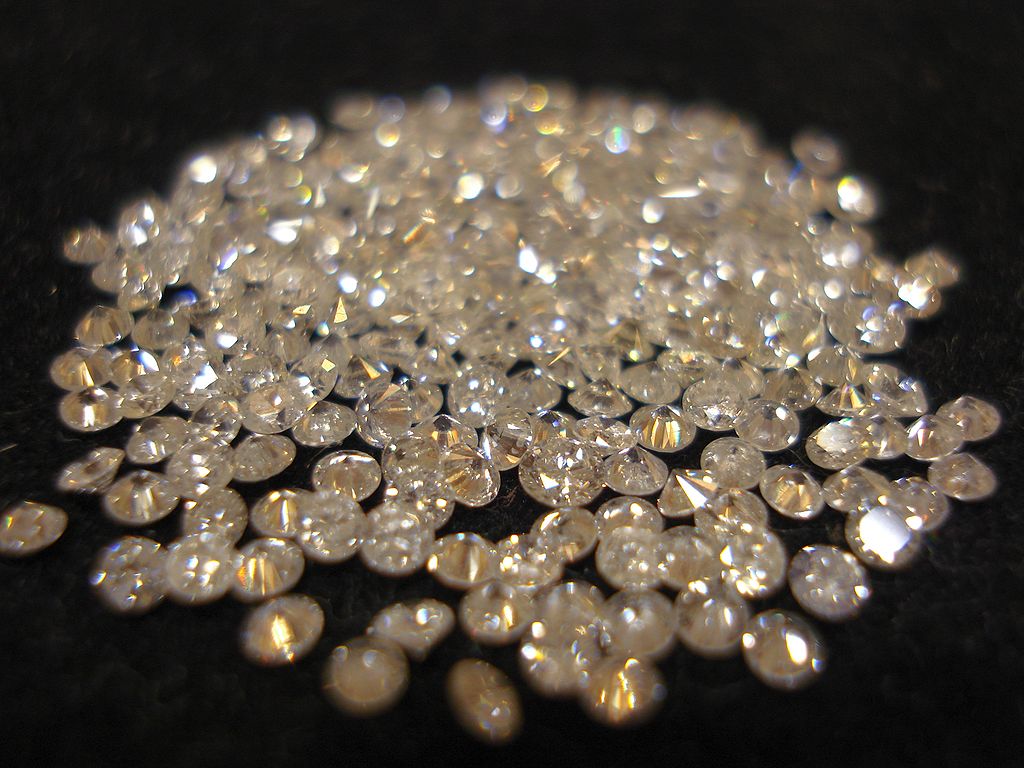As Valentine’s Day approaches, thoughts (and advertising) turn to all things romantic. Flowers, candies, candlelight dinners, weekend getaways, and of course, the most significant love symbol of all, diamonds. That’s why I wasn’t all that surprised when this video popped up on my Facebook feed. Subsequently, I ended up stumbling into a case study of the power and lasting effects of misinformation.
The Claims:
Social media personality Scott Frenzel claims that diamonds are not the rarest gemstone, contrary to popular belief. He asserts that their perceived value arises from clever marketing tactics rather than the gem stone’s scarcity. Although this explanation appealed to my sensibilities, I wanted to investigate these claims because it seemed improbable that one company created the diamond’s allure and elevated status in popular culture. Frenzel also has a large audience (1.5 million followers on TikTok), so if this were misinformation it would likely spread.
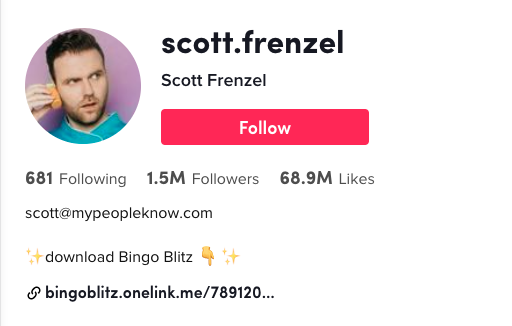
Evaluation:
The Source: First, I looked at who was making the claim, Scott Frenzel and ascertained whether I found him credible. Since the start of the COVID pandemic, Frenzel has become an overnight sensation as a content producer on TikTok. Aside from his informational content, he’s also pulled a few attention grabbing stunts, like eating a lollipop with a cricket inside.
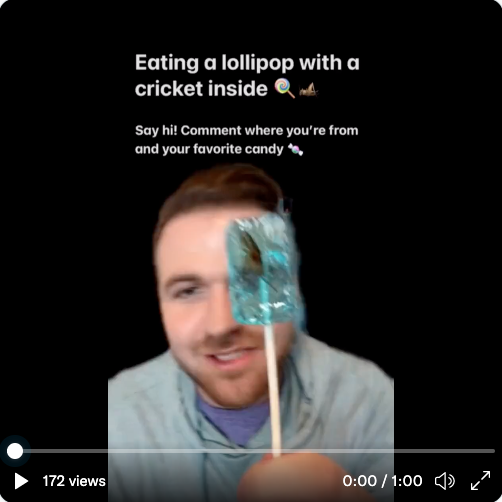
Despite such antics, I found him sincere and credible and found no derogatory reports about him or his content. Since Frenzel is not reporting findings of his original research, nor citing his sources, it makes this video seem like opinion or “diamond gossip.”
Are diamonds rare?
A Google search of this question yielded these top results:
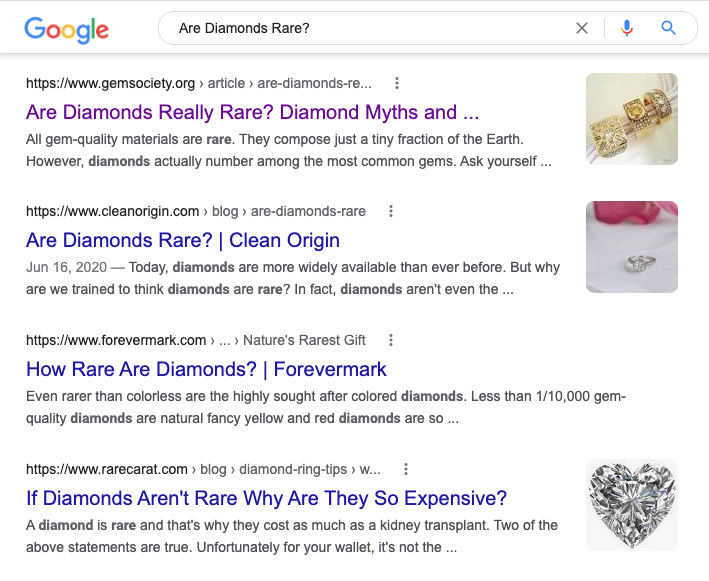
There were numerous sources to investigate this claim, and to a fault, they agreed that diamonds weren’t nearly as rare as many believe. Consulting the International Gem Society website, they not only corroborated Frenzel’s claims but went point by point, dispelling other popular diamond myths. There were news sources as well. CNN had a 2018 article with the stupefying headline: A quadrillion tons of diamonds lie deep beneath the Earth’s surface. The article cited the results of a study conducted by MIT and other universities that showed perhaps 1-2% of the Earth’s mantle appears to be diamonds. CNN also created a slideshow for this story that put these numbers into perspective.
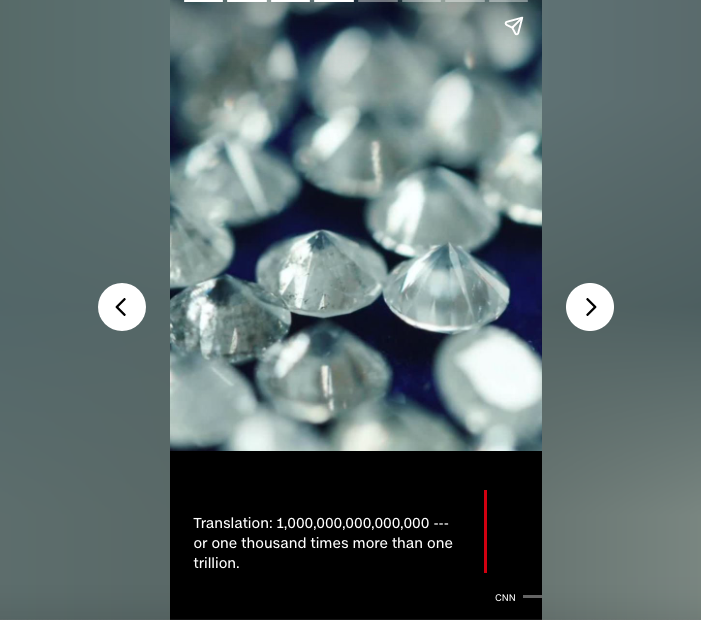
So, if diamonds are quite common, their value isn’t derived from their scarcity.
Did De Beers create a diamond cartel and restrict the availability of the gemstones while conducting an unprecedented marketing campaign to increase demand?
Yes. Yes, they did.
Hundred of reputable sources confirm De Beers functioned functions as a cartel. An authoritative account of the history of De Beers since its founding in 1870 by Cecil Rhodes is detailed in the research article, The De Beers Diamond Story: Are Diamonds Forever?. Professors Donna J. Bergenstock and James M. Maskulka pull no punches in their assessment and assail De Beers’ “branding” of diamonds as another indicator of the “control” the company seeks to exert on the diamond trade and the public perceptions of value.
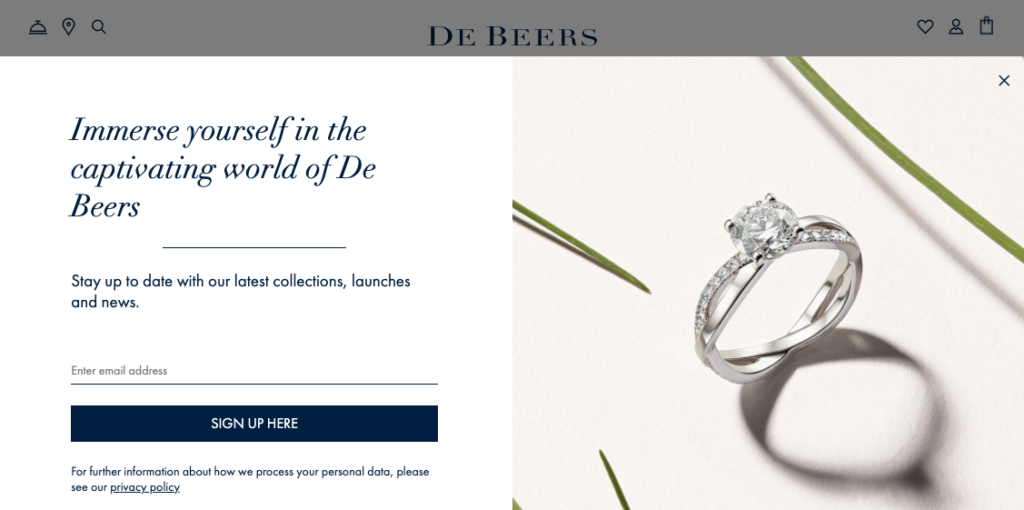
In addition to their control of supply, De Beers implemented a marketing strategy that amplified demand. In a 2015 article in the Atlantic titled, How an Ad Campaign Invented the Diamond Engagement Ring the magazine tracks how the brand rose to dominate the retail industry behind the iconic phrase,
A Diamond is Forever.
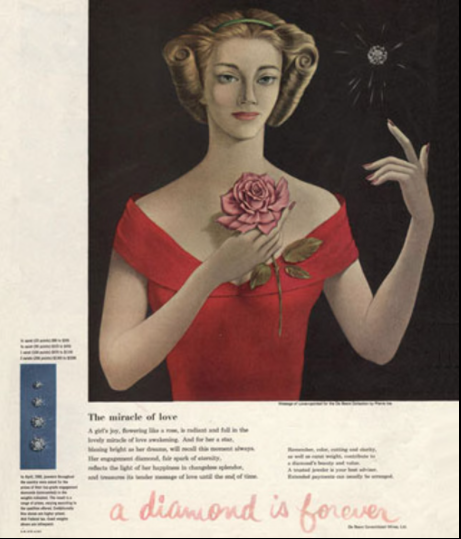
After the widespread marketing campaign was launched, came the reinforcement throughout popular culture. From Marilyn Monroe –
To James Bond –
Diamonds became the ultimate status symbol and proof of undying love and devotion.
Conclusion:
After researching the claims that Scott Frenzel rattled off in his TikTok video, it appears that the information he shared is corroborated by numerous authoritative sources. I think my initial skepticism arose from a distrust of Frenzel because glib, fast-talking slickness is suspect in my book. I’m glad that I investigated the origins of the modern diamond industry because it brought into focus one of the greatest scams in history – the confluence of disinformation and propaganda that built the De Beers diamond cartel and the world’s obsession with the ultimate shiny toy.
